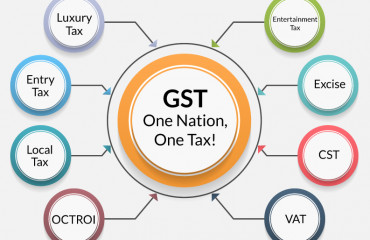
Every Monday, Mint’s Plain Facts section features key data releases and events to look for in the coming week. India is set to get its 15th president this week as Ram Nath Kovind, the incumbent, soon completes his five-year tenure. Several revisions in tax rates by the Goods and Services Tax (GST) Council will come into effect this week. Consumer goods giant Hindustan Unilever Ltd (HUL) and information technology (IT) companies Wipro Ltd and Infosys Ltd will release their quarterly earnings reports.
Every Monday, Mint's Plain Facts section features key data releases and events to look for in the coming week. India is set to get its 15th president this week as Ram Nath Kovind, the incumbent, soon completes his five-year tenure. Several revisions in tax rates by the Goods and Services Tax (GST) Council will come into effect this week. Consumer goods giant Hindustan Unilever Ltd (HUL) and information technology (IT) companies Wipro Ltd and Infosys Ltd will release their quarterly earnings reports.
1. Presidential elections
Legislators across the country will cast their votes on Monday to elect the 15th President of India. Draupadi Murmu, the National Democratic Alliance (NDA) candidate, looks all set to become the second Odisha-born president after V.V. Giri (1969-1974). Hailing from the Santhal tribe, Murmu will also be the first tribal person to hold the post if elected. The Bharatiya Janata Party hopes to boost its tribal support base with the move. It had announced Murmu's name last month after Opposition parties declared Yashwant Sinha their joint candidate. The NDA by itself doesn't have a majority in the electoral college, but the support of some regional parties such as the Shiv Sena could see Murmu through. Parties often use their choice of presidential candidate to make sociopolitical statements. This time, some anti-NDA parties such as the Jharkhand Mukti Morcha have been left confused about going ahead with Sinha at the cost of upsetting their tribal vote base.
2. GST rate hike
Effective Monday, the government will remove tax exemption on several items and also increase the tax slab of various others in a bid to rationalize the goods and services tax (GST) rate structure and boost revenues. The decision was taken at a two-day meeting of the GST Council in Chandigarh last month. The exemptions on several unbranded food items were removed because the subjective nature of the term "branded" was creating conflict. The items will now be referred to as "pre-packaged and labelled". The hike in rates was also brought about to rectify the inverted duty structure. The changes are also likely to help states, which had been requesting the central government to extend the compensation regime beyond the 30 June deadline. However, the higher rates could force the common citizen, who is already reeling from high inflation, to further tighten purse strings.
3. HUL earnings
HUL, India's largest company in the fast-moving consumer goods (FMCG) segment, will release its earnings report for the June-ended quarter on Tuesday. In the March quarter, the company's year-on-year profit growth had slipped to 5.2%. The slowdown was the result of subdued demand during the third covid-19 wave and intense raw material inflation stoked by high palm oil and crude derivatives prices. Most FMCG companies, including HUL, have tried to pass on the burden to consumers, which may have aided revenue growth in the June quarter. Analysts expect HUL to post a moderate volume growth of 3-4%, bumped up by base effect. The sales growth will be led by hiked prices, while operating margins are likely to have stayed under pressure, analysts said.
4. IT earnings
Two IT majors—Wipro and Infosys—will release their earnings reports for the June quarter this week: on Wednesday and Sunday, respectively. Analysts expect Infosys to retain a revenue growth guidance of 13-15% year-on-year. For both companies, strong attrition headwinds are depressing profit margins by raising wage costs. The radical measures they have had to find to retain staff—from promotions to frequent salary hikes—will continue to put pressure on profits. The sequential dollar revenue growth for Wipro and Infosys are pegged at 1.7% and 2.8%, respectively, according to an earnings preview by KRChoksey. The brokerage expects Wipro's bottomline to dip 3.3% and Infosys' to rise 1% sequentially. Investors will keep an eye on what the companies say about future attrition rates and wage costs, as well as supply-side challenges. Another key monitorable will be the impact of an economic slowdown in the US and Europe, a weakening rupee and falling demand.
5. ECB policy
The European Central Bank (ECB) is all set to hike interest rates on Thursday for the first time in 11 years. Economists believe the move will be too delayed: pandemic-era inflation had already overstayed its welcome before it got a further upward push from disruptions because of the Ukraine war.
In June, headline inflation in the euro area reached a record high of 8.6%, more than four times the ECB's target of 2%. In Spain, inflation breached the 10% mark for the first time since 1985. Italy and Germany are also staring at multi-decade records. However, fears of a global slowdown mean market participants now expect a smaller quantum of rate hikes this year than they did earlier. Nomura is even pencilling in a rate cut for next year before a rate hike gets in place. When it hikes rates, the ECB will also need to ensure limited damage to weaker euro economies.
